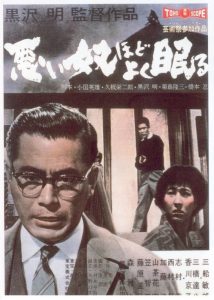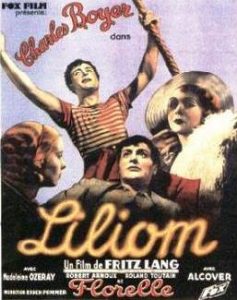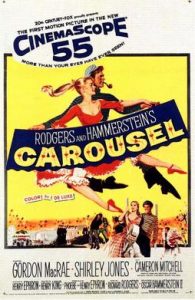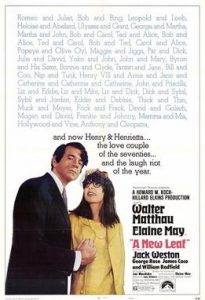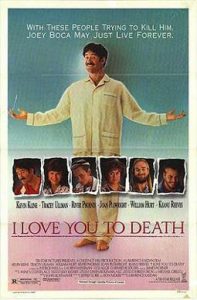This week I took another look at films about Hustlers.
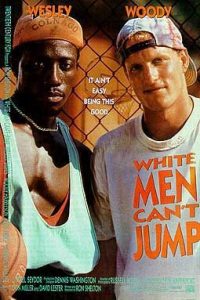 The first film on my list, Ron Shelton’s White Men Can’t Jump starring Wesley Snipes and Woody Harrelson, tells the story of Sidney Deane (Snipes) a fast-talking streetball hustler who works the courts all over LA. He’s very surprised one day when he gets beaten by Billy Hoyle (Harrelson) a seemingly easy mark of a white chump ready to be taken but is actually an ex-college basketball star who’s been using his exceptional basketball skills to try and pay back some debts.
The first film on my list, Ron Shelton’s White Men Can’t Jump starring Wesley Snipes and Woody Harrelson, tells the story of Sidney Deane (Snipes) a fast-talking streetball hustler who works the courts all over LA. He’s very surprised one day when he gets beaten by Billy Hoyle (Harrelson) a seemingly easy mark of a white chump ready to be taken but is actually an ex-college basketball star who’s been using his exceptional basketball skills to try and pay back some debts.
Wesley recruits Billy to be his partner in a series of scams. Using Billy to draw in potential marks, because everybody knows that white men can’t jump, they hope to win a local competition.
I remember this movie tripping my radar because it was the first time I’d ever seen Harrelson in anything besides Cheers. For the most part, this movie was okay but not particularly memorable. Still, it had its good bits. Snipes and Harelson have good chemistry (I’m always embarrassed that I keep forgetting how good an actor Snipes is.
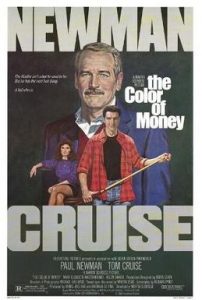 The next film on my list, Martin Scorsese‘s The Color of Money starring Paul Newman and Tom Cruise, is a sequel to the great classic, The Hustler.
The next film on my list, Martin Scorsese‘s The Color of Money starring Paul Newman and Tom Cruise, is a sequel to the great classic, The Hustler.
It is twenty years later, and Fast Eddie Folsum (Newman) has quit pool and is making a fairly good living selling liquor (while sort of managing some pool hustlers on the side). One night he runs into a young charismatic player named Vincent Lauria (Cruize). He’s a fantastic player with “natural flakiness” and Eddie sees him as having the makings of a truly great pool hustler. He offers to train and manage cruise, taking him on a six-week training trip before competing at a tournament in Atlantic City.
I won’t say this will be my favorite Scorsezzi film but it is definitely my favorite Newman performance. In comparison, Tom Cruise is just there to be pretty.






